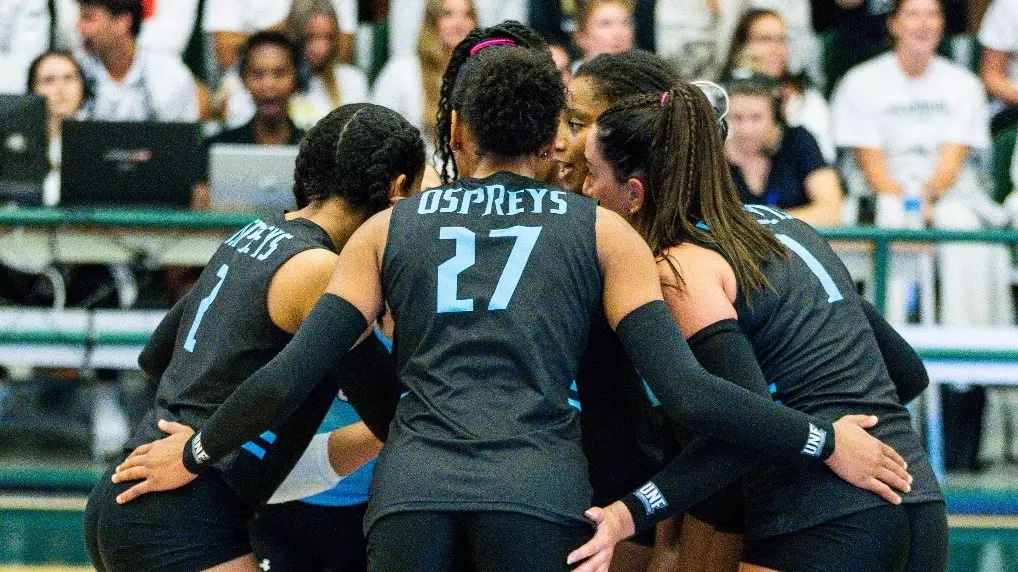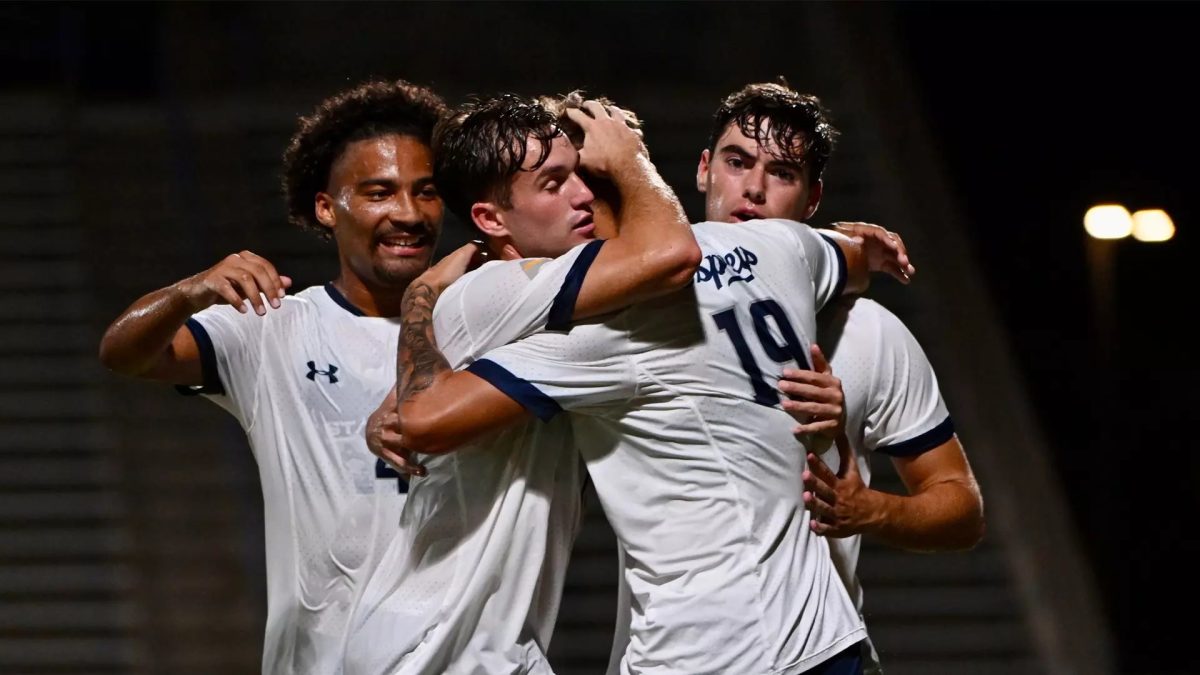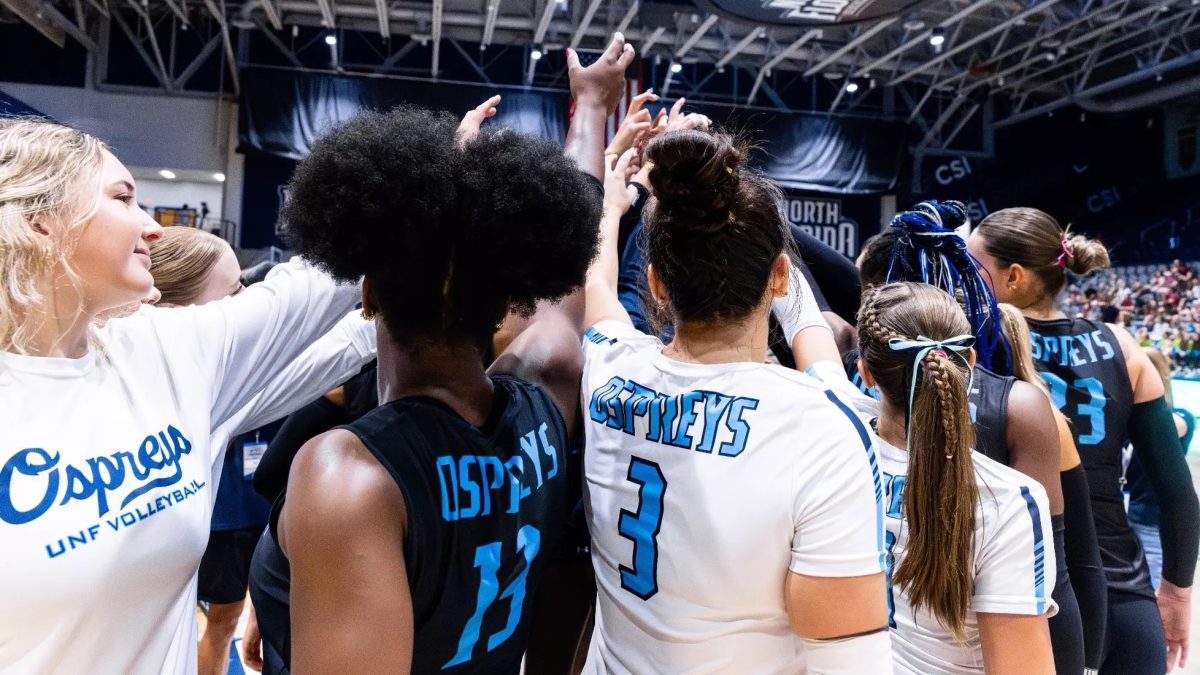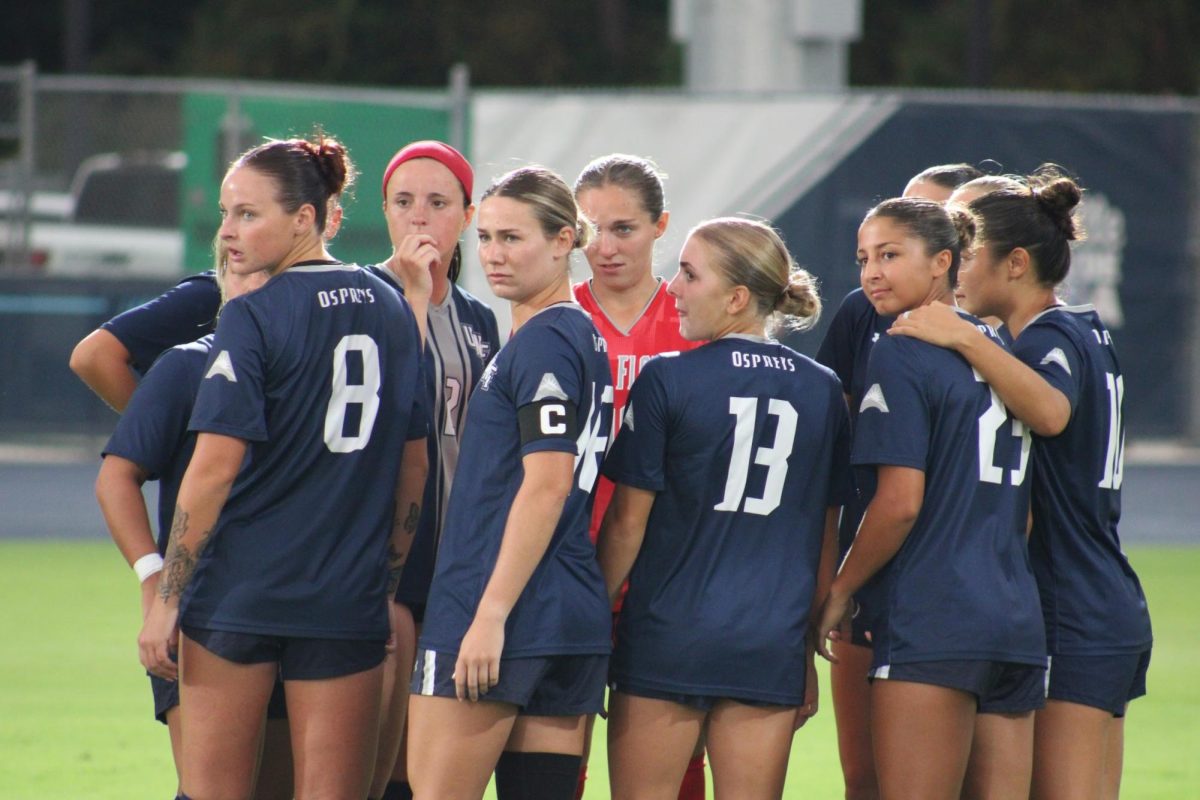Musicians struggle to get paid amongst a market of no-shows
Taylor Goranson
Jawren Walton, the lead singer of a local band, “Stank Sauce,” and a UNF Jazz instrumental saxophone junior, says Jacksonville’s music scene does little to satiate his hunger for music. Walton isn’t alone. Many local bands and promoters say the music scene in Jacksonville is fleeting. Lesser known bands are struggling to find gigs, and fans are daunted by the sheer geographic size of Jacksonville.
Walton and his fellow Jazz student/band members, who are also UNF students, spend extensive amounts of time practicing and going to class everday. Despite their already crammed schedules the band finds time to practice together as well.
Stank Sauce won UNF’s annual Battle of the Bands contest this year. Still, they have yet to find steady playtime.
“It just sucks … we put in a lot of hours, individually, trying to perfect our craft,” Walton said. “We spend hours a day practicing to be as good as we can … and the fact that people don’t come out to support it hurts, and that’s why a lot of people [in this business] get burned out.”
Walton, a Jacksonville native, has played at well-known local venues such as Freebird Live and Jack Rabbits. However, Walton said his fans on the westside, where he resides, are reluctant to travel to attend their shows. He said this is a common occurrence amongst fans in Jacksonville, due to the city’s massive size.
Too many times, Walton said, Stank Sauce has played shows where they didn’t get paid – if the venue didn’t make enough money to cover its own costs, nobody got paid.
It’s even more of a hassle for him to find venues to host shows for his genre: jazz.
Walton wonders why Jacksonville, home to one of the top jazz schools in the country, has trouble getting venues to cater to jazz musicians.
Kevin Maddox, keyboardist for Stank Sauce, and UNF instrumental piano junior, shares the sentiment.
“We are lacking in both venues and promotions,” Maddox said.
In short, fans typically follow the more popular, bigger-name bands that come to Jacksonville — not locals, Maddox said.
While this may be an economical move for some bars and clubs, some argue that it’s hindering local musicians who are being excluded from the circuit.
Stank Sauce, 10 West and others said venues are reluctant to support fringe music, except for metal.
“This is a metal town,” said George Stevens, front man for local band 10 West.
Chris Bishop, lead singer of Party 4 Three, said a lot of venues are unmotivated to hear out new bands or even veteran bands that are less mainstream.
“The scene is all about image,” Bishop said. “Kids want to go see bands that dress a certain way and act a certain way because they think the band members are cute, not because the band has talent.”
When fans don’t show, there is no show
Party 4 Three’s keyboard player Josh Cannon said the dwindling music scene is also due to an unmotivated, homebody fan base.
“I think the Jacksonville music scene is so fractured as far as the different sectors of town and where people are willing to go. People in Middleburg don’t want to go to the Beaches and people at the Beaches don’t want to go to Riverside,” he said. “Jacksonville has the opportunity to become a really vibrant music scene, but I think there is a little bit of laziness involved.”
Bruce Cataldo, owner of Brewster’s Pit on Beach Boulevard, said the scene is fair and that, perhaps, poor band management is to blame for bands’ dismal reception.
Cataldo said talent scouts, bands, booking agents and other higher-ups are strictly looking at the numbers.
Prior to the shows at The Pit, business is discussed and agreed upon, Cataldo said. Bands in that night’s line-up are ordered by most tickets sold to least tickets sold. The band with the most tickets sold will headline the show and the band with the least tickets sold opens. Bands makes a percentage of their ticket sales’ minimum. How much the band gets paid, aside from ticket sales, is determined by how much the venue itself makes.
“Bands that produce higher numbers in ticket sales are the bands who deserve to be booked more often,” Cataldo said.
Still, Cataldo sympathizes with struggling bands.
“We do, sometimes, have to not pay bands, which is unfortunate,” Cataldo said. “The touring band gets paid first, followed by the second to last band and any other bands ranking in order of playtime — then the staff, and then The Pit. If I’m not making money, then I can’t afford to pay the first band to play. I do try and hook them up with other opportunities if I can’t pay them, though.”
Sometimes, Cataldo said, a headliner band will require opener bands to sell a specific amount of tickets.
For instance, last weekend, The Pit’s headline band, “Helmet,” required all opening bands to sell 30 or more tickets. When a band is unable to sell the set ticket amount, they won’t be able to play the gig.
“It’s all about the money,” Cataldo said.
Bruce Cataldo said bands should be responsible for their own promoting as well.
Cataldo will book any band to play for any genre, he said.
Jeff Vrabel, a former Florida Times-Union reporter, wrote extensively about Jacksonville’s music scene in 2005 — a time, he recalls, when the scene was mostly country.
“It felt like that there could have been more going on,” Vrabel said. “But I don’t know if that was just Jacksonville. It was during the time that a lot of the bottom was falling out of the touring industry and everyone was pulling back.”
Still, Vrabel said there was plenty to write about in the music scene up until 2004.
“[That’s] when a lot of shows began to be cancelled, and I believe it was one of the worst times of the touring music industry,” he said.
People simply grew tired of paying “exorbitant” ticket prices, Vrabel said.
It’s peculiar that the scene’s recession bottomed out in 2005, considering hometown hero Lynyrd Skynyrd was inducted to the Rock and Roll Hall of Fame in 2006, Vrabel added.
Another factor, Vrabel said, is that Jacksonville is out of the way in comparison to headliner cities such as Atlanta, Orlando, Miami and Tampa.
Bands are still determined to overcome these pitfalls
Cannon said he tries to make an impact with his music any way that he can — big or small.
“The biggest thing is to play any time that you can … because there will always be someone that you can turn onto your band,” he said.
Social networking has been a major tool in promotional advantages for bands. Now bands with a Facebook page can connect with fans and venues, via the Internet.
A Facebook page, “Jax Musician Network,” aims to make an impact on the music scene by organizing bands.
The problems of the Jacksonville music scene are confounding and various. While solutions may seem evident, their execution has yet to be seen. Though the scene may change, the music will never die.
“The scene is forever changing … it’s in a state of perpetual evolution,” Morris said.

















Kelvin (Kelly) Kotera | Feb 8, 2020 at 3:12 pm
I agree. As a musician, band leader,TV producer and music recording engineer… We need a local TV station to provide exposure for local Jacksonville bands.
JAXmusicTV.com is ready to produce music TV for Jacksonville.
How about UNF Spinnaker TV providing the airwaves?
Kelly@JAXmusicTV.com